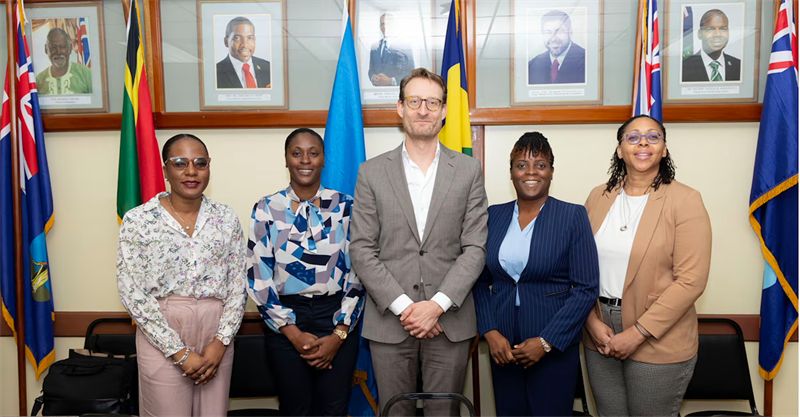World Bank Mission Supports Saint Lucian Development
The Organisation of Eastern Caribbean States (OECS) embarked on a significant stride towards bolstering data-driven decision-making with the commencement of a hybrid mission under the Data for Decision Making (DDM) Project in Saint Lucia. This collaborative endeavor, spanning from December 9th to 12th, 2024, brought together representatives from the World Bank, the OECS Commission, and the Government of Saint Lucia. The mission’s core objectives encompassed evaluating the project’s progress, reviewing performance indicators, and finalizing the annual work plan for future initiatives. This collaborative approach underscored the shared commitment to leveraging data as a catalyst for sustainable development within the Caribbean region.
The World Bank’s involvement, led by Senior Economist Ann Luisa Paffhausen, reaffirmed their dedication to empowering Caribbean nations with robust data systems. Paffhausen emphasized the project’s pivotal role in equipping the OECS countries with the necessary tools for informed, evidence-based policy formulation. The mission aimed not only to assess progress but also to fortify existing partnerships, refine strategic approaches, and ensure that data serves as a transformative force for sustainable growth. The World Bank’s support signifies a long-term investment in the future of the OECS and its member states.
The Saint Lucian government’s active participation, represented by senior policymakers and technical officers, further solidified the nation’s commitment to data-driven development. Deputy Permanent Secretary Barbara Ann Francis-Augustin from the Department of Economic Development highlighted the mission’s significance in strengthening national decision-making processes and aligning governmental activities with the needs of the populace. This collaborative effort with the OECS and the World Bank exemplifies Saint Lucia’s dedication to building a robust foundation for evidence-based policies and sustainable economic growth.
The mission’s agenda encompassed a range of critical discussions and technical sessions. High-level deliberations focused on staffing requirements, project covenants, monitoring frameworks, and the crucial role of beneficiary satisfaction surveys in assessing project impact. Technical sessions delved into specific methodologies for the Agricultural Census and the Survey of Living Conditions Household Budget Survey, examining financial management processes and updates to procurement strategies. These collaborative sessions aimed to address existing challenges, refine methodologies, and solidify actionable plans for the upcoming year. The combined expertise of the participating organizations ensured a comprehensive and impactful approach to strengthening data systems.
The DDM Project, launched in 2022 with a five-year implementation timeframe, underscores the long-term vision for enhancing data utilization within the OECS. The project’s primary goal is to generate high-quality data that can inform policy decisions across various sectors, contributing to more effective and targeted interventions. The establishment of the Regional Data Governance Council (RDGC), a key component of the World Bank-funded project, will play a vital role in ensuring access to reliable and timely data for the OECS and its member states. This centralized data governance structure will promote standardization, data sharing, and effective utilization across the region.
The Saint Lucia mission represents a crucial step in the DDM Project’s overall implementation, solidifying partnerships and setting the stage for future progress. By fostering collaboration, strengthening technical capacities, and establishing robust monitoring frameworks, the mission has laid the groundwork for achieving the project’s ambitious goals. The outcomes of this mission are expected to substantially enhance Saint Lucia’s capacity to utilize data as a driving force for decision-making, ultimately benefiting its citizens and contributing to the achievement of sustainable development goals. This collaborative approach exemplifies the power of partnerships in driving positive change and fostering data-driven development within the Caribbean region.
Share this content:












Post Comment